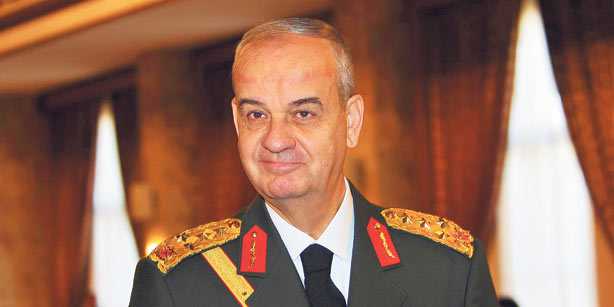
The İstanbul 13th High Criminal Court is hearing the case based on allegations that the General Staff put up and managed 46 websites that were created specifically to conduct an online campaign against the government. Prosecutors say this was part of a larger coup plan devised in 2003.
The court hearing the trial wrote to the General Staff on Oct. 17, 2011, requesting a copy of the initial order that led to the creation of the controversial websites. On Dec. 16, 2011, the General Staff responded to the inquiry, sending a photocopy of the order. When the court demanded to see the original, the General Staff indicated that the order, approved on Apr. 2, 2009, was destroyed on Sept. 3, 2009.
The order for the websites, judging by the photocopied version, was classified as a document in category B, which meant it should have been archived for at least five years, according to current regulations.
Sami Aktaş, a gendarmerie sergeant, said the destruction of the order was in violation of directives regarding the handling of confidential documents classified as category B. “Destruction of a category-B file before five years have passed is a crime both under the Headquarters Services Directive and the Turkish Armed Forces (TSK) Archives Directive.” Aktaş said those who gave the orders for the destruction of the document should be found and punished, adding a probe was called for immediately.
Meanwhile, the former head of Turkey’s armed forces, Gen. İlker Başbuğ, who was arrested last Thursday on charges of having ordered the Internet campaign, denied that he gave any orders and blamed Ret. Gen. Hasan Iğsız, the former deputy chief of General Staff, for being behind the campaign.
Turkey has seen some retired generals jailed in coup cases over the past few years, but Başbuğ, who retired in 2010, is the highest-ranking officer to be caught up so far. Başbuğ is facing charges of “establishing or administering a terrorist organization” and “seeking to unseat the government of the Republic of Turkey by force.”
Prosecutors say some 46 websites run by the military actively sought to create public discontent about the government, as part of a larger coup plot devised in 2003.
In his defense statement on Thursday, Başbuğ said he was facing allegations one-and-a-half years after his retirement, and he found it very hard to understand why his “illegal” activities were not noticed when he was on active duty and working with the president, prime minister and members of the Cabinet as a member of the National Security Council (MGK).
He said Iğsız’s signature appeared beneath the army order for the controversial websites, which prosecutors say were a deliberate smear campaign against the government.
The Taraf daily spoke to Murat Ergül, a lawyer representing Iğsız. “We don’t see his words in court as an accusation. Iğsız’s duty is not to present it to the chief of General Staff. The unit that prepared the document that was submitted to Iğsız has to submit it to the chief of General Staff. My client signed the Internet campaign document as part of the chain of command.”
Meanwhile, a lawyer for Başbuğ was quoted as saying his client should be tried in the Supreme Court -– the name the Constitutional Court assumes when trying army officers or former ministers — if he is charged with plotting to overthrow the government.
Reuters quoted lawyer İlkay Sezer as saying Başbuğ had worked in tandem with Prime Minister Recep Tayyip Erdoğan’s Justice and Development (AK Party) government for seven years, and he was stunned by the belated accusations against him.
“There has been no allegation of a crime until now, one and a half years following his retirement. … He says it is beyond his comprehension,” the news agency quoted Sezer as saying.
Sezer said any indictment should be framed by the Supreme Court of Appeals, and the case heard by Turkey’s top court.
The retired chief is also accused of leading a gang of anti-government conspirators.
There were small pro-military protests in the cities of Bursa, Mersin and Afyon on Saturday, involving a couple hundred people, according to newspaper reports. The protesters carried Turkish flags and banners that read, “Not a submissive but resistant army” and “Army and people, hand in hand.”
The case is linked to Ergenekon, an alleged ultra-nationalist network police say they first unearthed in 2007. Hundreds of people have been jailed in the investigation, including journalists, academics, lawyers and military officers.
One of Erdoğan’s four deputy prime ministers, Bülent Arınç, said on Saturday he hoped the legal process would be speedy and distance the government from the case. “I hope the court process on Başbuğ is completed as soon as possible,” he said. “Nobody has the luxury to commit crimes in Turkey, and the judiciary is independent.”

Leave a Reply